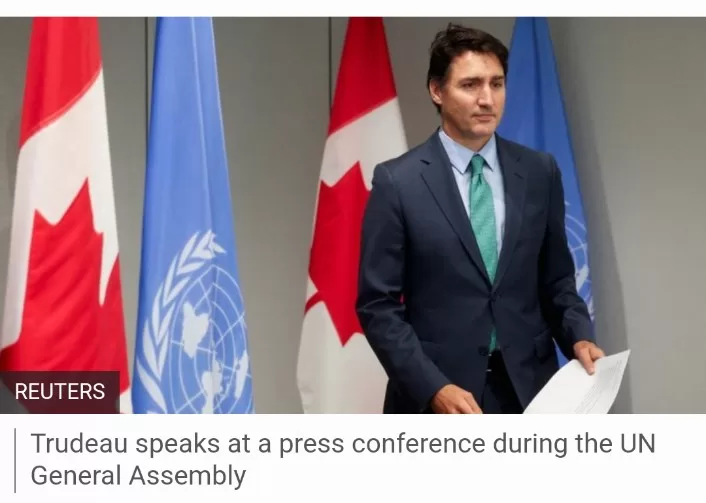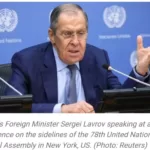In the bustling diplomatic arena of New York, Canadian Prime Minister Justin Trudeau found himself grappling with a growing chill in relations. The focal point of this frosty reception? India and a startling accusation by Mr. Trudeau himself: that the Indian government played a role in the extrajudicial killing of a Canadian citizen, a Sikh activist on Canadian soil, whom India has branded a terrorist. Delhi swiftly denied involvement.
Facing the media’s relentless questions, Trudeau, known for his affable demeanor, maintained a cautious stance. “We’re not looking to provoke or cause problems,” he emphasized, “We’re standing up for the rules-based order.”
Yet, a persistent inquiry hung in the air: Where were Canada’s allies when it needed support? A journalist pointedly observed that, “So far in time, you seem to be alone.”
While Canada’s traditional allies, part of the Five Eyes intelligence alliance, did offer statements of concern, they stopped short of robust backing. UK Foreign Secretary James Cleverly acknowledged that they took Canada’s claims seriously, while Australia expressed being “deeply concerned.”
However, the conspicuous silence resonated from the United States, Canada’s close neighbor. President Joe Biden, in a speech at the UN, mentioned India but in a tone of admiration for its economic contributions, rather than condemning actions. Biden’s National Security Adviser Jake Sullivan downplayed any “wedge” between the US and Canada, reassuring that Canada was consulted. Yet, public statements remained tepid, underscoring India’s growing significance on the world stage.
Analysts assert that Canada’s predicament lies in the vast difference in strategic importance between the nations. The US, the UK, and other Western allies have pinned their strategy on India as a counterweight to China, a geopolitical reality they can’t overlook. This explains their reluctance to rush to Canada’s defense.
Reports suggested that the Five Eyes partners shared intelligence on the matter, but when it came to publicly condemning the murder, Canada’s appeals met with silence. US Ambassador to Canada David Cohen refrained from commenting on private diplomatic discussions.
Canada, though a dependable Western ally, is not a global powerhouse, further highlighting the challenges it faces in this geopolitical showdown. “This is a moment of weakness,” observed Christopher Sands, director of the Canada Institute.
Canada’s ethics-driven disclosure of allegations, if proven true, could be seen as a political assassination on its soil by a fellow democracy. However, ethics alone may not sway the broader global dynamics.
For Trudeau, this diplomatic ordeal follows a challenging summer marred by allegations of Chinese election interference and the transfer of notorious serial killer Paul Bernardo to a medium-security prison, which ignited public outrage. Trudeau’s approval ratings hit a three-year low, with a majority of Canadians expressing disapproval.
The prime minister’s star power, once dazzling, has dimmed over his eight-year tenure, with Canadians possibly feeling his visibility has been overwhelming. Nonetheless, experts suggest that the India row could provide a much-needed boost for Trudeau domestically, diverting attention from pressing domestic issues.
As the week drew to a close, Trudeau found solace standing alongside Ukrainian President Volodymyr Zelensky, offering a glimpse of camaraderie amidst diplomatic isolation. For a brief moment, Trudeau was in the company of a fellow leader and global figure.




